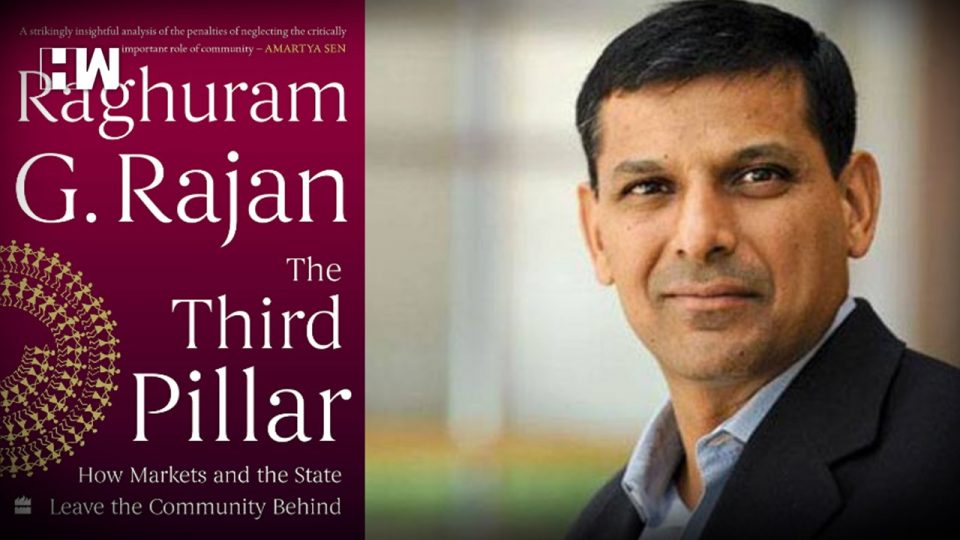The soft spoken, smooth talking and highly learned ex-RBI governor, Raghuram Rajan, is back in the limelight. Being a media darling, when Raghuram Rajan has something to say, everybody lends their ears to the man who was featured in the 2016 edition of Time Magazine’s “100 most influential people in the world”.
Mr Rajan, at the launch of his new book “The Third Pillar”, gave a series of interviews on a host of pertinent topics; we however, cut through the chaos and focus on the three most important ones from the economic point of view.
The most important issue in his opinion, which is plaguing the Indian economy, which he feels has not drawn enough attention, is the creation of jobs. The eminent economist considers it a serious matter that the job market in India is highly skewed in favour of pass outs from reputable institutions like IITs and IIMs, but a pathetic future awaits job seekers with high school degrees. He called out for a more broad-based growth in the job market. Suggesting that the state of affairs are so dire, that questions have been raised about the government withholding discomforting data prepared by the NSSO labour survey that reportedly put unemployment rate in 2017 at a 45 year high. Rajan stated that it is important to convey to the world that we are not manipulating our data; else our credibility would be at stake. He went to say that it would be useful to get a panel of independent experts to look into our statistics process and that we cannot rely on EPFO or other make do versions to collect our data.
Via an example, he gave us the proof of the pudding of the dire state of affairs of our jobs market. He said that 25 million people are applying for 90,000 jobs in railways.
Another area of prime focus that Rajan brought to light is the mistrust he places on India’s growth rate or GDP data. He revealed that he doubted that India was really growing at 7% and relating this statistic to jobs data, he quoted one minister in the Narendra Modi government as saying “How can we be growing at 7% and not have jobs. Well, one possibility is that we are not growing at 7%”. He went on to say that several problems have come to light under the Narendra Modi government relating to GDP growth figures. In November, the Centre revised growth rates for the 2006 to 2012 period. Further, when the Statistics Commission showed a growth rate of 10% for one year under the Congress regime, it was removed and replaced rather hurriedly. In addition to this, the base year for calculating GDP was also revised. Such issues, and more, have led to a group of economists and social scientists to urge the Indian government to restore integrity and reputation of its statistical organisations. In fact, he even said that the international community was starting to get so worried that they were planning to implement an independent index for India, which would put us at par with the mistrust that the international community places on China.
Rajan went on to make a very pertinent point and said that “If you have numbers that don’t tally with reality, it can lead to policy mistakes, such as an ineffective monetary policy”.
Coming to the third aspect, which is the latest election gimmick being implemented by the Congress and BJP – Farm Loan Waivers. Rajan said that loan waivers are killing credit culture and that India needs to focus on resolution of farm distress rather than loan waivers.
He stated that several state governments have announced loan waivers for farmers; but the problem with this is that these loan waivers cover only those farmers which have taken loans from the formal system and not the poorer ones who have loans from the money lenders or agricultural workers who never got a loan in the first place.
And when a loan waiver is granted to a particular farmer, a banker would always be skeptical giving a loan to such a farmer once again at a later stage. Hence, they suffer in credit down the line even though they may get some short-term benefit, and this kills credit culture. He suggested targeted income for the poor as an option to give support to them.
Another insight provided by Rajan in relation to schemes such as the minimum income guarantee scheme announced by Rahul Gandhi a few days ago is that these are recurring and may grow over time because no one will be satisfied with the old level of support; they constantly want some adjustments for inflation. Entitlements once set in place come back to haunt you in a few years. It’s not enough to say that the cost is going to be let’s say ₹ 10,000 crore this year, what about five years from now when it is fully rolled out?
As an independent media platform, we do not take advertisements from governments and corporate houses. It is you, our readers, who have supported us on our journey to do honest and unbiased journalism. Please contribute, so that we can continue to do the same in future.

